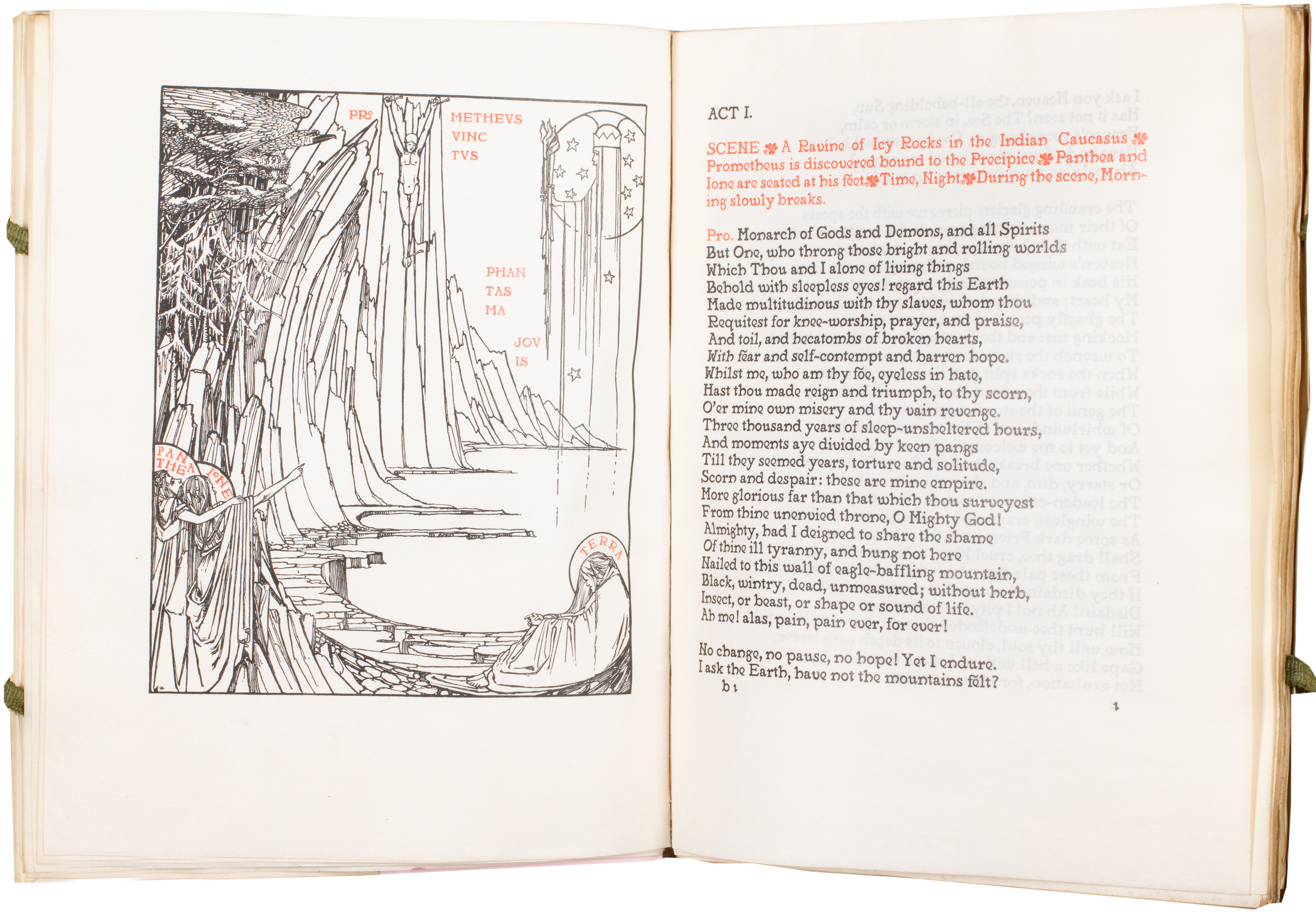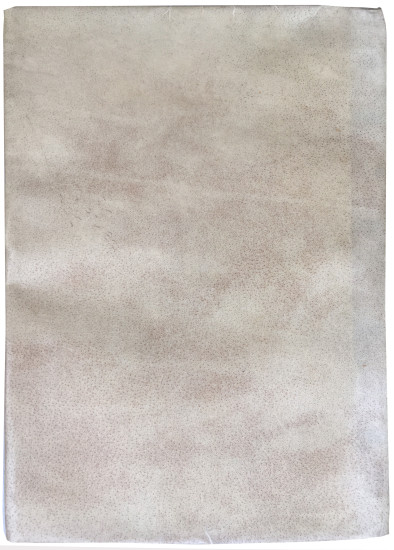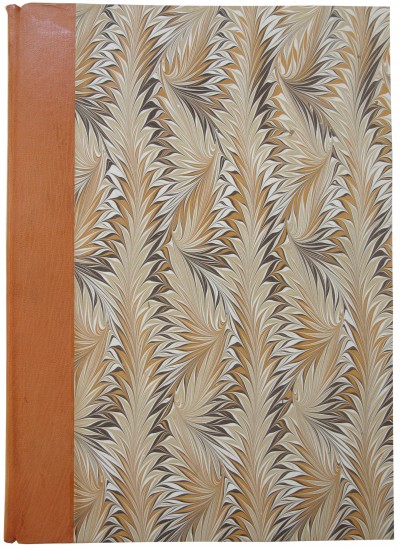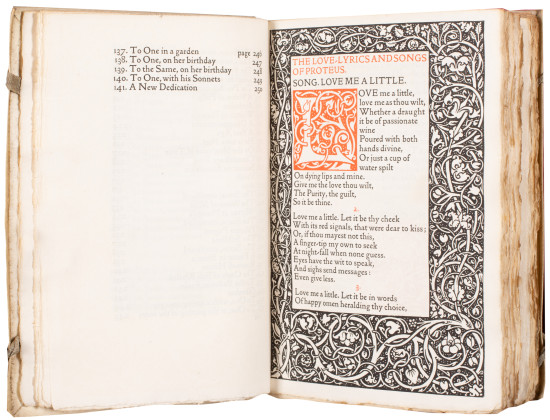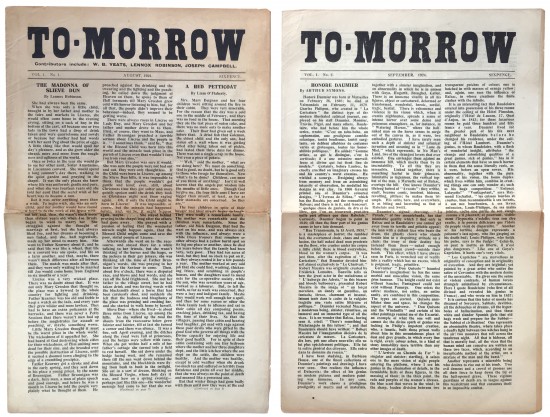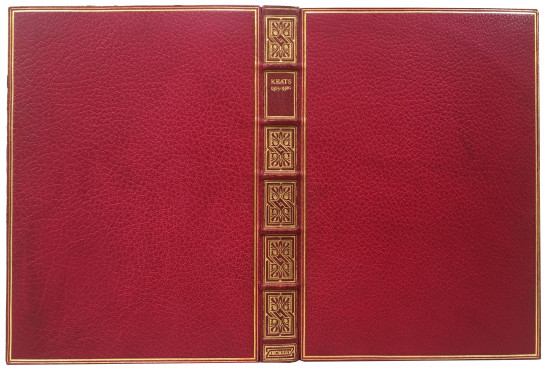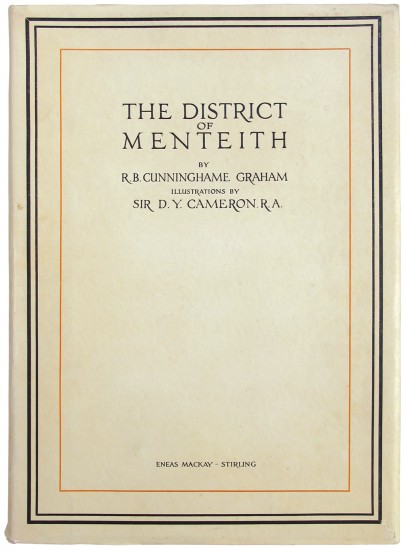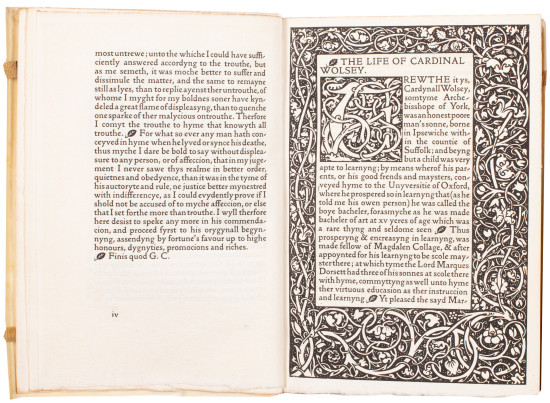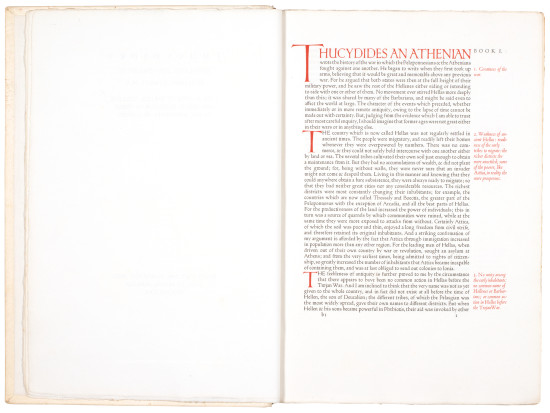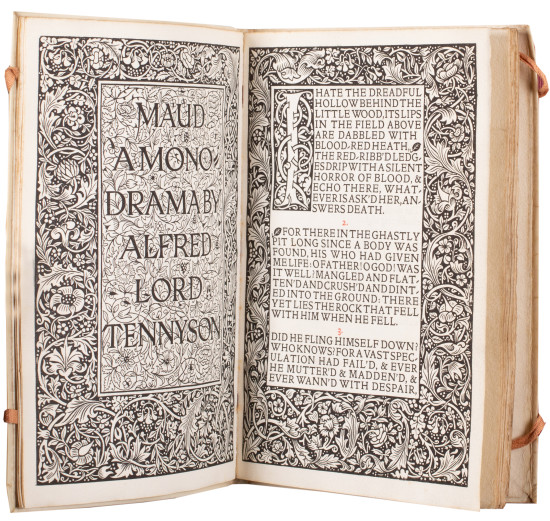Prometheus Unbound
Essex House Press. Shelley, Percy Bysshe
Campden, Glos. / London / New York. Essex House Press for Edward Arnold & Samuel Buckley & Co.. 1904
Copy number 1 on vellum - unopened and completely unsophisticated - of Ashbee's edition of Shelley's drama.
From the edition limited to 220 numbered copies, with this copy the first of 20 on vellum and numbered '1' in red ink to the justification.
Shelley's lyrical drama 'Prometheus Unbound' was composed in Italy starting in 1818 but was only published - unsatisfactorily for Shelley and with many errors - in 1820. Shelley was inspired by the 'Prometheia' trilogy, supposed by many to be a trilogy and attributed to Aeschylus, but for Shelley the play concerned freedom and rebellion, the French Revolution and the tyranny of contemporary governments. In Shelley's version the revolutionary Prometheus is the hero who overcomes the tyrant Jupiter; unlike in the original version there is no reconciliation between the protagonist and his persecutor. This edition of Shelley's drama does not include the explanatory introduction written by Shelley for the first edition.
Charles Robert Ashbee (1863 - 1942), the architect, designer, bibliophile and primum mobile of the Arts and Crafts Movement (he founded the Guild and School of Handicraft in 1888), founded his Essex House Press after the closure of William Morris' Kelmscott Press. The press issued a large number of books - all printed on the Floor Model Albion Press No. 6551 formerly used at the Kelmscott Press - between 1898 and 1911. Ashbee designed two types, 'Prayer Book' as used in 'Prometheus Unbound' and 'Endeavour', both based on Morris' own 'Golden' type.
Copies of the book on vellum are necessarily rare and we trace only a handful since 1990, all bound or incomplete. This copy, number 1 of 20 on vellum, unopened and with only some minor staining and a few spots to the vellum binding, is very well preserved.
[Ransom 43].
From the edition limited to 220 numbered copies, with this copy the first of 20 on vellum and numbered '1' in red ink to the justification.
Shelley's lyrical drama 'Prometheus Unbound' was composed in Italy starting in 1818 but was only published - unsatisfactorily for Shelley and with many errors - in 1820. Shelley was inspired by the 'Prometheia' trilogy, supposed by many to be a trilogy and attributed to Aeschylus, but for Shelley the play concerned freedom and rebellion, the French Revolution and the tyranny of contemporary governments. In Shelley's version the revolutionary Prometheus is the hero who overcomes the tyrant Jupiter; unlike in the original version there is no reconciliation between the protagonist and his persecutor. This edition of Shelley's drama does not include the explanatory introduction written by Shelley for the first edition.
Charles Robert Ashbee (1863 - 1942), the architect, designer, bibliophile and primum mobile of the Arts and Crafts Movement (he founded the Guild and School of Handicraft in 1888), founded his Essex House Press after the closure of William Morris' Kelmscott Press. The press issued a large number of books - all printed on the Floor Model Albion Press No. 6551 formerly used at the Kelmscott Press - between 1898 and 1911. Ashbee designed two types, 'Prayer Book' as used in 'Prometheus Unbound' and 'Endeavour', both based on Morris' own 'Golden' type.
Copies of the book on vellum are necessarily rare and we trace only a handful since 1990, all bound or incomplete. This copy, number 1 of 20 on vellum, unopened and with only some minor staining and a few spots to the vellum binding, is very well preserved.
[Ransom 43].
[54 leaves including blanks: pp. 96]. Small folio. (286 x 226 mm). Leaf with title, quotation from Sophocles in red and dramatis personae, leaf with large woodcut in black with red printed text b Ashbee verso as frontispiece and Act I - Act IV of Shelley's drama, printed text in red and black in Prayer Book type throughout, final leaf verso with justification, printer's device and colophon. Original publisher's vellum with Yapp edges, four green silk ties, gilt title to spine.
#48649
